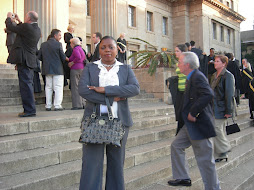Bhutan’s Gross National Happiness Policy: Is it working?
An article published by RFA (Radio Free Asia) website in February 2006 tries to assess so far the implementation of the Bhutan’s GNH (Gross National Happiness).
The concept was launched in 1972 by the King of the tiny Himalayan country. The King of Bhutan declared that progress in his country would be gauged in terms of GNH rather than in terms of GNP or GDP – Gross National or Domestic Product, the traditional economic indicators of a country’s development. Beyond the King’s decision was the idea that ‘contentment’, not capital, should become Bhutan’s official priority. The GNH lies on 4 pillars:
• socioeconomic development
• environmental preservation
• cultural promotion
• good governance
By emphasizing on these four pillars, officials of Bhutan are now committed to promote an ‘economics as if people mattered” (E.F. Schumacher, Small is beautiful, 1973). Researchers see the philosophy of the GNH as not so much antidevelopment, or even anti-globalisation, as it is pro-balance. But how this is working effectively for the benefit or the happiness of people of Bhutan?
79% of Bhutanese are still farmers. Each of them has a roof over their head and a piece of land. Other national income is generated by supplying hydroelectric power to India and by tourism.
T. Kumar, Asia advocacy director for the Washington Office of human rights group Amnesty International, said that some 100, 000 Bhutanese of Nepalese origin fled Bhutan about 10 years ago because of abuses there. They now live in refugee camps in the eastern part of Nepal (RFA, 2006). “Children in Southern Bhutan continue to face discrimination in access to education because they belong to Nepali-speaking community”, said Kumar.
The introduction of satellite television into Bhutan in 1999 has been linked by the British newspaper, The Guardian, to a rise in drug use, crime, and other antisocial behaviour. Encouraged to wear Bhutanese national dress in public, Bhutanese youth increasingly wear Western-style clothing at home.
In fact, GNH seems a work in progress rather than a reality. Dr. Trudy Sable, director of the Office of Aboriginal and Northern Research at St. Mary’s University in Halifax, Nova Scotia, had these words: “GNH is not like it’s done. It’s more like accept that they want to live by; but [officials] have to figure out how to do it”.
However, I think that the Bhutanese experience should inspire the rest of the world, especially Africa. African leaders should start empowering their people by making them at the heart of the continent development. There is no sustainable development without without human resources.
For more information on the topic, read: Karma Ura & Karma Galay (eds.), Gross National Happiness and Development, The Centre for Bhutan Studies, 2004.
Saturday, May 10, 2008
Subscribe to:
Post Comments (Atom)





No comments:
Post a Comment